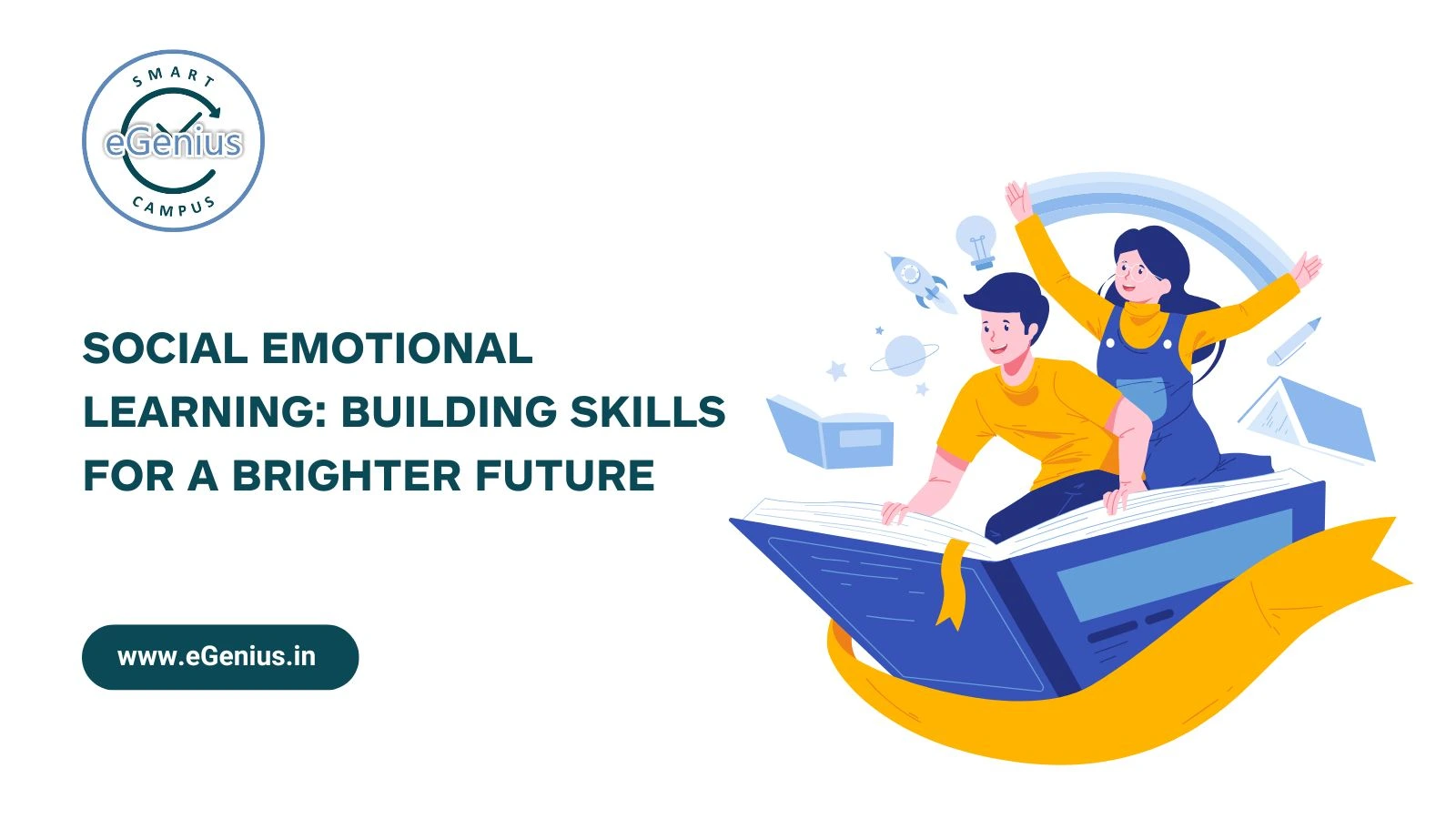In schools, success isn’t just about grades—it’s about how well students can manage their emotions, interact with others, and navigate the challenges they face. This is the essence of Social Emotional Learning (SEL). SEL teaches vital life skills such as self-awareness, empathy, and responsible decision-making, helping students grow into confident, emotionally intelligent individuals. In this blog, we’ll dive into the importance of SEL in education and show how Education ERP can play a key role in fostering these skills to ensure students’ emotional and academic success.
What is Social Emotional Learning (SEL)?
Social Emotional Learning, or SEL, helps students manage their emotions, make good choices, build strong relationships, and show empathy for others. It focuses on important life skills that are not always covered in regular school subjects, like math or science. SEL teaches students how to recognize and handle their feelings, which is especially helpful in understanding how their actions affect others around them.
Why is SEL Important for Students?
Today’s world is full of challenges, from making new friends to handling stress or changes at home. SEL equips students with tools to stay calm, think clearly, and react in positive ways. When students learn these skills, they can focus better, feel more confident, and even do better in their studies. Schools around the world are realizing that focusing on SEL can make students happier and more successful in life.
Core Components of Social Emotional Learning
1. Social Emotional Learning covers several key areas that help students understand themselves and others better:
2. Self-Awareness: Understanding one’s own emotions and values.
3. Self-Management: Learning how to control one’s feelings and behaviors.
4. Social Awareness: Recognizing and respecting others’ feelings.
5. Relationship Skills: Building positive relationships with friends, teachers, and family.
6. Responsible Decision-Making: Making thoughtful, safe, and caring choices.
Each of these components builds upon each other, helping students create a balanced view of themselves and the world around them.
How Education ERP Supports SEL
Education ERP (Enterprise Resource Planning) software is a tool that schools use to simplify and organize many parts of student learning and school management. With an Education ERP system, teachers and administrators can better support SEL in a structured way. Here’s how:
Tracking Student Progress: ERP software lets teachers monitor student behavior, progress, and emotional growth. They can quickly identify areas where students may need extra support.
Personalized Learning Paths: ERP systems allow teachers to adjust lesson plans and activities based on students’ unique SEL needs. This means students get more tailored experiences, helping them grow in specific areas.
Enhanced Communication: Communication channels built into ERP software make it easy for teachers, parents, and counselors to work together on a student’s SEL journey. Sharing updates can strengthen the support around each student.
Social Emotional Learning in Real Life
Imagine a student named Alex who has difficulty making friends. Through SEL, Alex learns how to listen and share his thoughts respectfully. In class, he might practice these skills during group activities, where he sees that being kind and understanding makes others enjoy being around him. Gradually, Alex builds stronger friendships, boosting his confidence and happiness in school.
Stories like Alex’s are common in schools that practice SEL. When kids learn to handle their emotions and understand others, they feel more connected and supported, which makes school a positive place.
Benefits of Social Emotional Learning
Learning SEL has both short-term and long-term benefits. Some of these include:
1. Better Academic Performance: When students can handle stress and focus on their studies, they tend to do better in school.
2. Improved Behavior: SEL teaches students positive ways to react, which means fewer arguments or disruptions in class.
3. Healthier Relationships: Knowing how to listen and share builds trust, helping students create lasting friendships.
4. Self-Esteem: As students learn to understand themselves, they feel more confident and resilient.
SEL encourages students to be better friends, classmates, and leaders. Schools using Education ERP can take these benefits even further by providing a supportive, organized environment that encourages students to practice SEL skills in everyday interactions.
By using SEL and Education ERP together, schools can create a nurturing environment where students learn both academic skills and essential life skills. SEL gives students the tools to succeed, not just in school but in life, setting the stage for a brighter, more connected future.
Frequently Asked Questions (FAQs)
1. What is Social Emotional Learning (SEL) in simple words?
SEL teaches students how to understand and handle their own emotions and helps them make friends, manage stress, and make good choices.
2. Why is SEL important in schools?
SEL is important because it helps students build life skills that lead to better behavior, stronger relationships, and even higher grades.
3. How does Education ERP support SEL in schools?
Education ERP supports SEL by helping teachers track student progress, personalize learning paths, and communicate better with parents, creating a stronger support system.
4. Can SEL improve academic performance?
Yes, students with SEL skills often perform better academically as they can focus better and manage stress effectively.
5. What are some examples of SEL activities?
Examples include group discussions, role-playing exercises, and activities where students practice understanding others’ feelings.
Empower Student Growth Beyond Academics – Discover How eGenius Supports Social Emotional Learning for a Holistic Education Journey!















